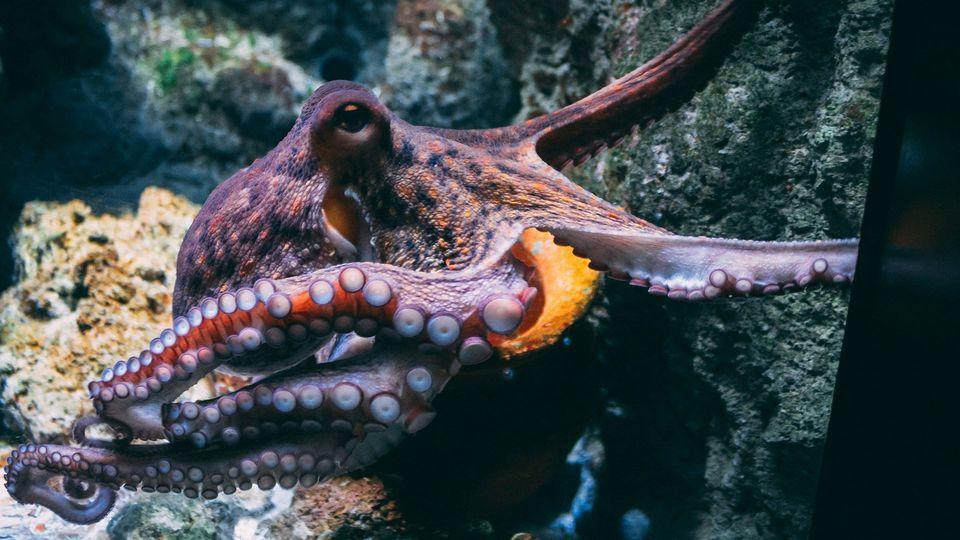
Octopuses May Possess the Oldest Known Sex Chromosomes
Sex chromosomes have been a crucial aspect of understanding genetics and evolution in the animal kingdom. These chromosomes play a vital role in determining the biological sex of an individual, and their discovery has been instrumental in unraveling the mysteries of evolution. Recently, researchers have made a groundbreaking discovery that has sent shockwaves through the scientific community. Octopuses, those intelligent and fascinating creatures, may possess the oldest known sex chromosomes in the animal kingdom.
The discovery was made by a team of researchers from the University of Oregon, who identified a unique Z chromosome system in cephalopods, which includes octopuses, squid, and cuttlefish. This finding has solved a long-standing mystery in the field of evolutionary genetics and has significant implications for our understanding of the history of life on Earth.
The Mystery of Cephalopod Sex Chromosomes
For decades, scientists have been puzzled by the sex determination system of cephalopods. Unlike mammals and birds, where the sex of an individual is determined by the presence of either an X or Y chromosome, cephalopods have a different system. The sex of a cephalopod is determined by the presence of a Z or W chromosome, with males possessing a Z chromosome and females possessing a W chromosome.
However, the origin of this unique sex determination system has been shrouded in mystery. Scientists have long been unsure when and how this system evolved, and whether it was present in the earliest cephalopods. The discovery of the Z chromosome system in cephalopods has finally shed light on this mystery.
The Study
The University of Oregon research team, led by Dr. Michael T. Kreek, used a combination of genetic and genomic analysis to study the sex chromosomes of cephalopods. They analyzed the genomes of several cephalopod species, including the common octopus (Octopus vulgaris), the Atlantic longarm squid (Doryteuthis pealeii), and the northern short-tailed squid (Illex illecebrosus).
The team used a technique called comparative genomics to analyze the genomes of these species and identify the sex chromosomes. They found that the Z chromosome was present in all the cephalopod species they studied, and that it was highly conserved across different species.
The Discovery
The discovery of the Z chromosome system in cephalopods is significant because it suggests that this system has been present for hundreds of millions of years. In fact, the researchers estimate that the Z chromosome system in cephalopods dates back over 480 million years, making it the oldest known sex chromosome system in the animal kingdom.
This finding has significant implications for our understanding of evolutionary genetics. It suggests that the sex determination system of cephalopods evolved long before the sex determination systems of insects and mammals. In fact, the researchers suggest that the Z chromosome system in cephalopods may have evolved before the emergence of insects, which are thought to have evolved around 360 million years ago.
The Significance of the Discovery
The discovery of the Z chromosome system in cephalopods has significant implications for our understanding of evolutionary genetics. It suggests that the evolution of sex determination systems is more complex and nuanced than previously thought.
The finding also has implications for our understanding of the biology of cephalopods. The Z chromosome system may play a role in the unique biology of cephalopods, including their ability to change sex and their complex courtship behaviors.
Conclusion
The discovery of the Z chromosome system in cephalopods is a significant breakthrough in the field of evolutionary genetics. It suggests that cephalopods may possess the oldest known sex chromosome system in the animal kingdom, dating back over 480 million years.
The finding has significant implications for our understanding of evolutionary genetics and the biology of cephalopods. It highlights the complexity and nuance of the evolution of sex determination systems and suggests that cephalopods may have evolved unique mechanisms to determine their sex.
As we continue to learn more about the biology of cephalopods and the evolution of sex determination systems, we may uncover even more fascinating insights into the natural world.
Source:






